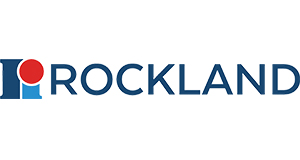Dog IgG
Dog IgG
Artikelnummer
ROC004-0102-0005
Verpackungseinheit
5 mg
Hersteller
Rockland
Verfügbarkeit:
wird geladen...
Preis wird geladen...
Application Note: Dog IgG whole molecule has been tested in SDS-Page can be utilized as a control or standard reagent in Western Blotting and ELISA experiments.
Concentration Value: 10.0 mg/mL
ELISA Dilution: User Optimized
Immunohistochemistry Dilution: User Optimized
Western Blot Dilution: User Optimized
General Disclaimer Note: This product is for research use only and is not intended for therapeutic or diagnostic applications. Please contact a technical service representative for more information. All products of animal origin manufactured by Rockland Immunochemicals are derived from starting materials of North American origin. Collection was performed in United States Department of Agriculture (USDA) inspected facilities and all materials have been inspected and certified to be free of disease and suitable for exportation. All properties listed are typical characteristics and are not specifications. All suggestions and data are offered in good faith but without guarantee as conditions and methods of use of our products are beyond our control. All claims must be made within 30 days following the date of delivery. The prospective user must determine the suitability of our materials before adopting them on a commercial scale. Suggested uses of our products are not recommendations to use our products in violation of any patent or as a license under any patent of Rockland Immunochemicals, Inc. If you require a commercial license to use this material and do not have one, then return this material, unopened to: Rockland Inc., P.O. BOX 5199, Limerick, Pennsylvania, USA.
Physical State: Lyophilized
Purity and Specificity: Dog IgG whole molecule was prepared from normal serum by a multi-step process which includes delipidation, salt fractionation and ion exchange chromatography followed by extensive dialysis against the buffer stated above. Dog IgG whole molecule was assayed by immunoelectrophoresis resulted in a single precipitin arc against anti-Dog IgG and anti-Dog Serum.
Background: Secreted as part of the adaptive immune response by plasma B cells, immunoglobulin G constitutes 75% of serum immunoglobulins. Immunoglobulin G binds to viruses, bacteria, as well as fungi and facilitates their destruction or neutralization via agglutination (and thereby immobilizing them), activation of the compliment cascade, and opsonization for phagocytosis. The whole IgG molecule possesses both the F(c) region, recognized by high-affinity Fc receptor proteins, as well as the F(ab) region possessing the epitope-recognition site. Both heavy and light chains of the antibody molecule are present.
Low Endotoxin: No
Other: User Optimized
Concentration Value: 10.0 mg/mL
ELISA Dilution: User Optimized
Immunohistochemistry Dilution: User Optimized
Western Blot Dilution: User Optimized
General Disclaimer Note: This product is for research use only and is not intended for therapeutic or diagnostic applications. Please contact a technical service representative for more information. All products of animal origin manufactured by Rockland Immunochemicals are derived from starting materials of North American origin. Collection was performed in United States Department of Agriculture (USDA) inspected facilities and all materials have been inspected and certified to be free of disease and suitable for exportation. All properties listed are typical characteristics and are not specifications. All suggestions and data are offered in good faith but without guarantee as conditions and methods of use of our products are beyond our control. All claims must be made within 30 days following the date of delivery. The prospective user must determine the suitability of our materials before adopting them on a commercial scale. Suggested uses of our products are not recommendations to use our products in violation of any patent or as a license under any patent of Rockland Immunochemicals, Inc. If you require a commercial license to use this material and do not have one, then return this material, unopened to: Rockland Inc., P.O. BOX 5199, Limerick, Pennsylvania, USA.
Physical State: Lyophilized
Purity and Specificity: Dog IgG whole molecule was prepared from normal serum by a multi-step process which includes delipidation, salt fractionation and ion exchange chromatography followed by extensive dialysis against the buffer stated above. Dog IgG whole molecule was assayed by immunoelectrophoresis resulted in a single precipitin arc against anti-Dog IgG and anti-Dog Serum.
Background: Secreted as part of the adaptive immune response by plasma B cells, immunoglobulin G constitutes 75% of serum immunoglobulins. Immunoglobulin G binds to viruses, bacteria, as well as fungi and facilitates their destruction or neutralization via agglutination (and thereby immobilizing them), activation of the compliment cascade, and opsonization for phagocytosis. The whole IgG molecule possesses both the F(c) region, recognized by high-affinity Fc receptor proteins, as well as the F(ab) region possessing the epitope-recognition site. Both heavy and light chains of the antibody molecule are present.
Low Endotoxin: No
Other: User Optimized
| Artikelnummer | ROC004-0102-0005 |
|---|---|
| Hersteller | Rockland |
| Hersteller Artikelnummer | 004-0102-0005 |
| Verpackungseinheit | 5 mg |
| Mengeneinheit | STK |
| Methode | SDS-PAGE |
| Isotyp | IgG |
| Konjugat | Unconjugated |
| Produktinformation (PDF) | Download |
| MSDS (PDF) |
|

 English
English





